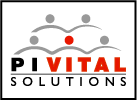 |
Click for Pivital Solutions Sponsor Page |
January 2004
Transact sites eye new futureSoftware-services solution to bring HP language’s users to COBOL
They represent the best of HP’s intentions for business computing. But the sites still using applications written in HP’s Transact language have a firm deadline for the end of their support. By this year’s second quarter they will have a way of moving onto a language with a longer support lifespan. ScreenJet Ltd. is putting together a pair of expert developers to create Transact to COBOL (T2C), a set of software tools and advice that will let companies move away from HP’s language. Yeo’s company will act as a sales, marketing and support resource for T2C. It will draw on the skills of the original author and developer of the products purchased by HP and sold as Transact and the Rapid products, David Dummer, and Enno Richter, developer of RPG to COBOL translation tools. The solution shows how the 3000 market’s expertise remains a resource for companies, linked by a community that understands such products still in use after more than 20 years. Transact was first introduced by Dummer and then purchased by HP in the 1980s, an era when HP wanted to sell every piece of software a customer would need for IT: languages, as well as applications. The language took off in a community that was building its own applications, eventually reaching an installed base estimated at more than 2,000 sites in its heyday. HP later brought in Allbase 4GL, relegating Transact to fewer enhancements and stripping the language of the “strategic” badge that prompted companies to adopt it. One of the more notable installations of Transact is at the Naval Undersea Warfare station in Keyport, Wash. A custom application there manages the station’s inventory of torpedoes. But nobody really knows any more how many Transact sites there might be. The fuzzy estimate of the customer base doesn’t deter ScreenJet’s Alan Yeo. “We could see a way that it could be accomplished in a way that wasn’t an indefinite lock in,” Yeo said. “Transact is a very small percentage of the overall market. However, for the people that are using it, it is a very large problem.” The software goes off support in December, 2006, and no third parties are promising to step in to replace HP’s services for the Transact community. T2C will convert procedural Transact code into COBOL. While the solution will use a Transact Class Library that supports migration to Unix or Linux, T2C will let companies continue using 3000s until the time is right for their transition. The converted code will also be compatible with HP COBOL II, and the Transact Class Library will be available for MPE/iX. “This approach means that the conversion from Transact to COBOL can be tested and even implemented on the HP 3000 prior to migration,” Yeo said. Code conversion is a tricky problem to solve, in part because developers have to learn to adopt a new syntax and procedures that can be radically different. Problems are solved in new ways with a new language. T2C promises to “deliver COBOL procedural code that feels the same as Transact, complete with all the power and functionality of the Transact Verb classes.” At the same time, the new code can be used with newer COBOL options such as Acucorp’s ACUCOBOL-GT extend6 family. COBOL, while even older than Transact, has an assured future, Yeo said. “I think COBOL will probably outlive languages like VB and Java. I think it was Gartner who published that COBOL code still in use is still growing at about 5 billion lines of code a year. Most COBOL suppliers have made the effort so COBOL can integrate into virtually any other language environment. I’ll bet that COBOL is available on more OS/hardware combinations than any other language.” The Transact Class Library in the software will be provided with linkages to the Eloquence TurboIMAGE API, as well as the ACUCOBOL-GT VPlus API from ScreenJet. T2C also has a code translation service as well as the software library. The conversion service and library can be ordered from ScreenJet Ltd., or through a migration service partner for a complete migration solution. Alpha testing is underway this quarter, and the Transact Class Library will be available for an annual run-time fee or as an outright purchase per CPU. Source code for the library will also be available. While some might argue that migrating Transact into COBOL is just trading one dinosaur for another, Yeo sees the solution as a more natural extension of Transact with a lot less work than moving to something like Visual Basic. “VB’s a re-write,” Yeo said, “and COBOL is more of a transition. Plus most Transact sites also use COBOL. Once you have migrated Transact to COBOL, you have all the options that you have with COBOL for the rest of the migration.”
|
Copyright The 3000 NewsWire. All rights reserved.
